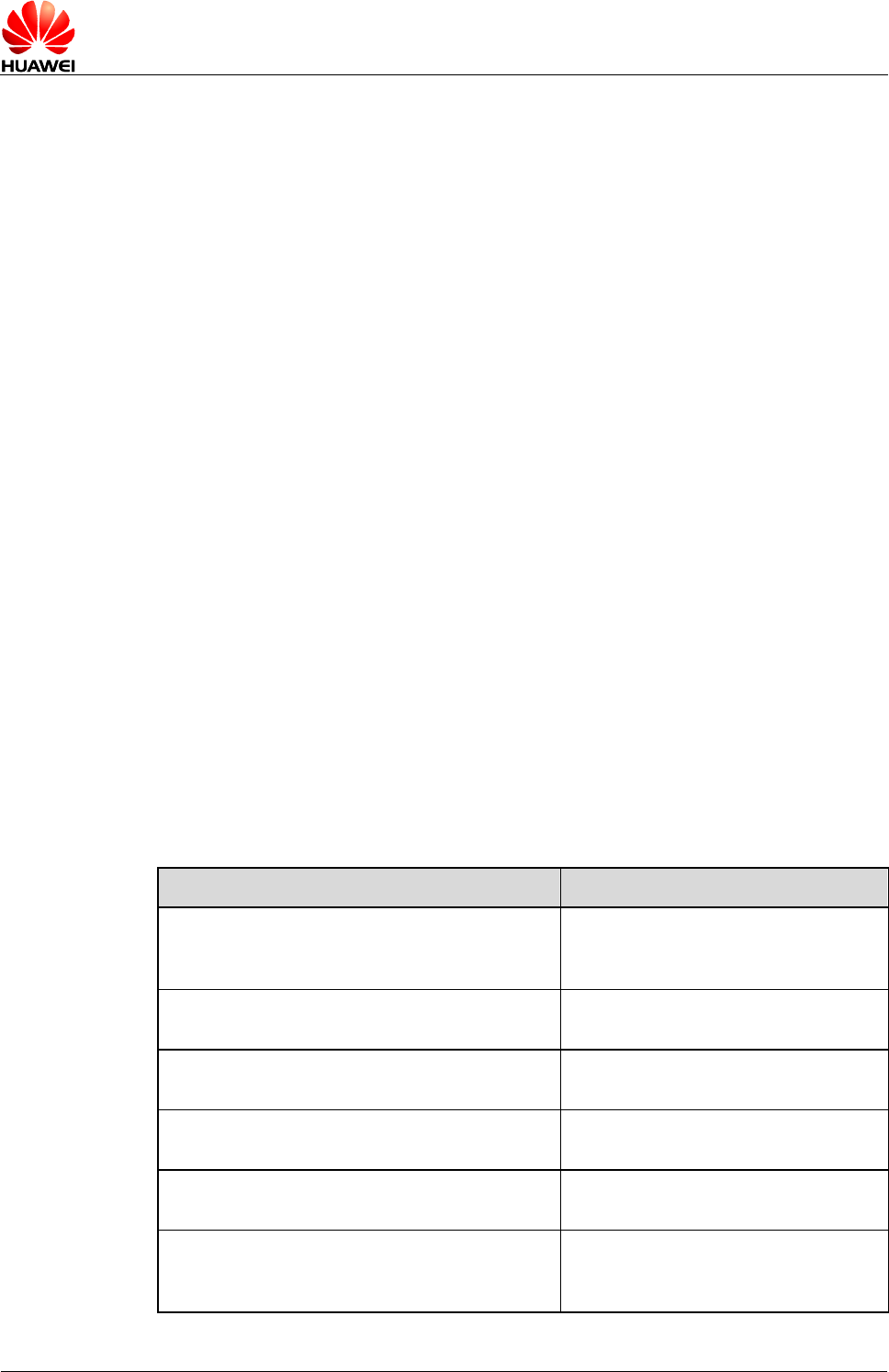
HUAWEI MG323 GSM M2M Module
AT Command Interface Specification Overall Description
Issue 02 (2010-11-23)
Huawei Proprietary and Confidential
Copyright © Huawei Technologies Co., Ltd.
7
commands such as the AT^XXX:<arg0>,<arg1> commands, or added to the
end of the ^ symbol, colon, and comma. No redundant space is added ahead of
or to the end of a command. This rule is applicable to the communication
between the MT and TE programs.
3. For an uninterruptible AT command, after sending the AT command, the TE
must wait until the MT responds to the AT command before sending the second
AT command. Otherwise, the second AT command sent by the TE is not
executed.
4. Unless otherwise stated, all default codes between the TE and MT follow the
format of GSM 7 bit Default Alphabet. For details, see section 6 in the 3GPP TS
23.038 protocol. The @ character is still transmitted as 0x00 of the 7bit coding
on interfaces. Therefore, the MT and TE must be able to process the character.
The MT passes the carriage return character (<CR>) and line feed character
(<LF>) in a string as spaces to the TE.
5. A string refers to a byte stream that is placed inside double quotation marks,
excluding the quotation marks or commas.
6. A string used by the TE to send a command cannot contain the combination of
quotation marks and commas (confusing a parameter with a string). The current
version does not support escape character. The code value of a data format in
the UCS2 coding is reported as characters. For example, if the UCS2 code of a
Chinese character is 0x553a, the 553a is reported.
A possible response sent by the MT to the TE consists of Information text and
Result code, in which Information text is optional and Result code is mandatory.
The format of a possible response is controlled by the ATV command. For details,
see the description of the ATV Command. In this document, all possible responses
listed in tables follow the ATV1 format.
1.5 Organization of This Document
This document consists of 16 chapters, covering the following contents:
Chapter Describes
Chapter 1 Overall Description The contents and organization of this
document and the basic knowledge
of AT command interfaces.
Chapter 2 Commands for Configuration The AT commands used to configure
the basic data of the module.
Chapter 3 Commands for Status Control The AT commands used to control
the status of the module.
Chapter 4 Commands for Serial Port Control The AT commands used to control
the serial ports of the module.
Chapter 5 Commands for Security Control The AT commands used to control
the security of the module.
Chapter6 Commands for Identification The AT commands used to query the
identification information about the
module.


















